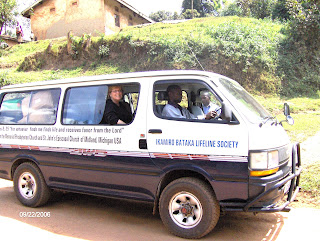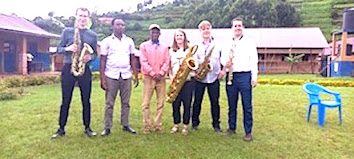Making ACT Sustainable for the Future
On this rainy April day in Michigan with the piles of snow disappearing, I am going to share with you a very interesting and exciting effort that ACT has been working on since May, 2021. The ACT Uganda and ACT MI folks have been discussing ways to make ACT sustainable for the long-term whether the US fund-raising is active or not. This would ensure future financial support for the work in Uganda without the dependence upon the U.S. donations/grants. We studied Mohammad Yunus' Book, A World of Three Zeros that describes the success of social businesses for just this purpose.
Social businesses, as defined by Yunus, are those that work to achieve three things: zero poverty, zero unemployment and zero net carbon emissions. The idea is to create a business, needed by the community, that pays workers, ultimately makes a profit and is good or at least not harmful to the environment. That profit would not go to business owners but would go back to ACT, as an NGO, to sustain our programs that, in turn, benefit the community. This would theoretically provide ongoing revenue to the programs rather than rely on donations and/or grants. The ACT MI Board chartered a group of business folks called, Financial Ugandan Needs for Development & Sustainability Task Force (FUNDS) to explore this idea.This group of talented individuals have been regularly meeting and completing feasibility studies on some business ideas that the ACT Ugandan staff originally brainstormed. We have learned that some of the business ideas were most likely not viable - the value of a feasibility study!
Currently, we are studying a tailoring business idea that would sew uniforms for all the local schools. Another idea we are completing is a hardware store in Muko Marketplace so that the community members would not have to travel 40 km to Kabale for hardware items. Our next step will be to decide on a pilot program (or 2) and find investors or donors to provide funds needed to initiate the pilot project. If the pilot programs prove to be successful, we can further build the businesses for long-term sustainability.
This is another example of how we are relying on our Ugandan partners for ideas, data and decisions to create sustainability for the future of Muko Sub County. We will keep you posted and, perhaps, you will be interested in being an investor or donor to this creative endeavor!




Comments
Post a Comment